We all want a smooth and hassle-free experience when dealing with car repairs, but sometimes we say things that can create unnecessary tension or misunderstandings with our mechanics. Here’s a list of the 20 things you should never say to your mechanic if you want to maintain a good relationship.
“I Got the Parts Myself”

TODAY reveals that “it’s dangerous for people to buy their own parts based on what they think the problem is.” It might seem like a way to save money, but bringing your own parts can actually cause more trouble, as mechanics often have preferred suppliers and warranties on the parts they provide.
“I Know What’s Wrong, Just Fix It”

While it’s great to have an idea of what might be wrong with your car, telling your mechanic exactly what’s wrong can lead to misunderstandings. Mechanics rely on their diagnostic skills to identify the true issue, which may be different from what you suspect, so allow them to do their job thoroughly.
“Can You Do It Cheaper?”

Asking for a discount or a cheaper fix can be insulting to a professional mechanic. It suggests that their work isn’t worth the price they’re charging, so if the quote seems high, ask for a breakdown of the costs or consider getting a second opinion.
“It’s Just a Simple Fix”
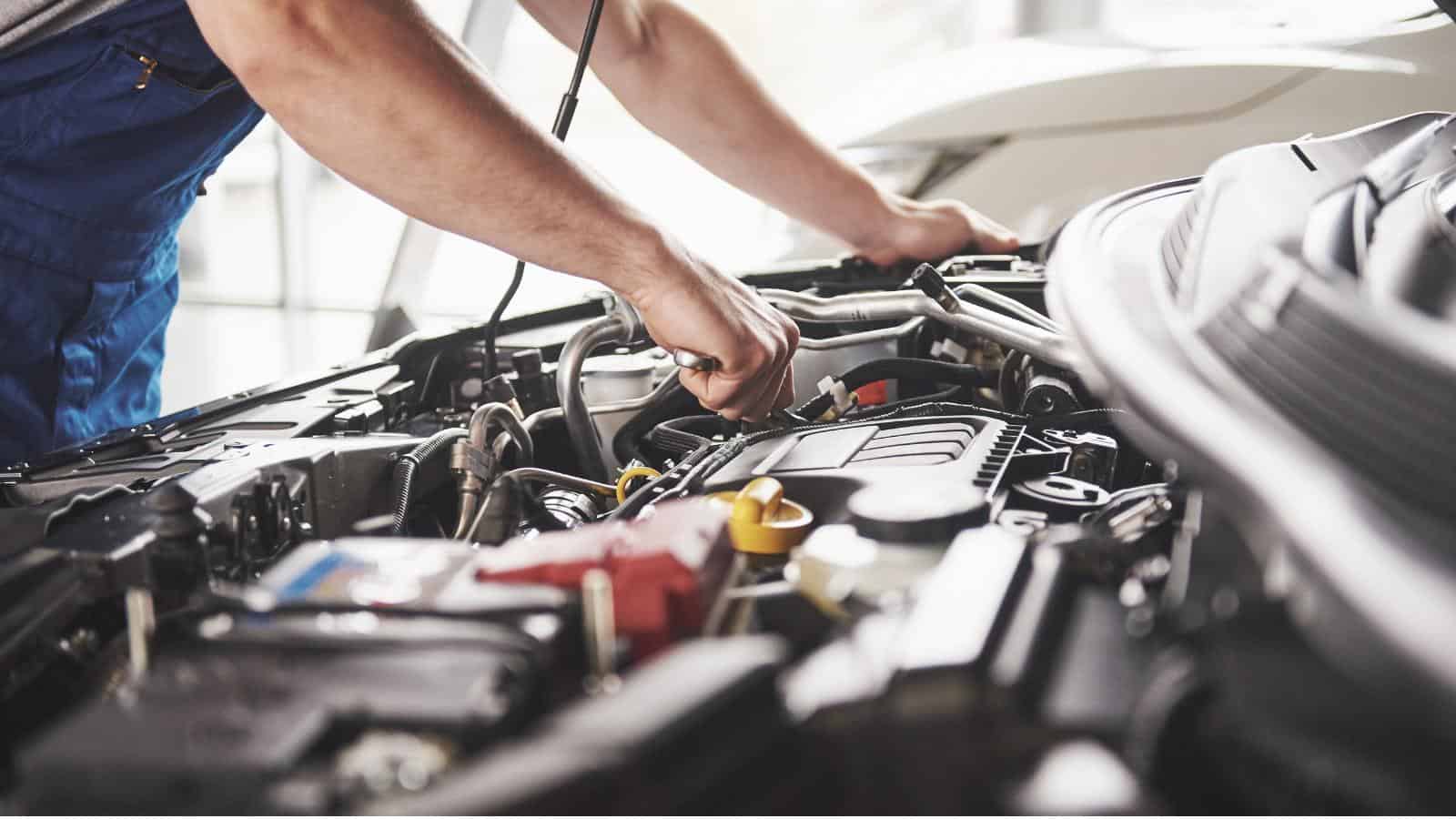
What may seem simple to you could be more complex than you realise; every car is different, and even minor issues can require significant time and effort to fix. Downplaying the problem can make your mechanic feel undervalued and may lead to rushed or incomplete work.
“Can You Hurry Up? I Need My Car Back Soon”

Mechanics understand that being without your car is inconvenient, but rushing them is counterproductive, as quality work takes time, and rushing through a repair can result in mistakes or missed issues. Instead, ask for an estimated timeline and check in politely if needed.
“I Had a Look Online, and It Said…”

The internet is full of information, but it’s not always reliable, therefore telling your mechanic what you read online can undermine their professional opinion. Trust their knowledge and experience over potentially inaccurate online advice, and if you have questions or concerns, discuss them openly.
“A Friend Said It’s Probably…”

While it’s good to gather opinions, using your friend’s advice as a definitive diagnosis can be problematic, because your mechanic has the tools and expertise to give a professional opinion based on actual inspection, not second-hand information. Share your friend’s thoughts if you must, but be open to the mechanic’s expert analysis.
“I Need This Done for the MOT, Can You Skip the Other Stuff?”

Skipping recommended repairs just to pass an MOT can lead to bigger problems down the road. Your mechanic’s recommendations are based on keeping your car safe and reliable, so if money is tight, discuss your options, but don’t dismiss necessary repairs outright. Safety should always come first.
“Why Is It Taking So Long?”
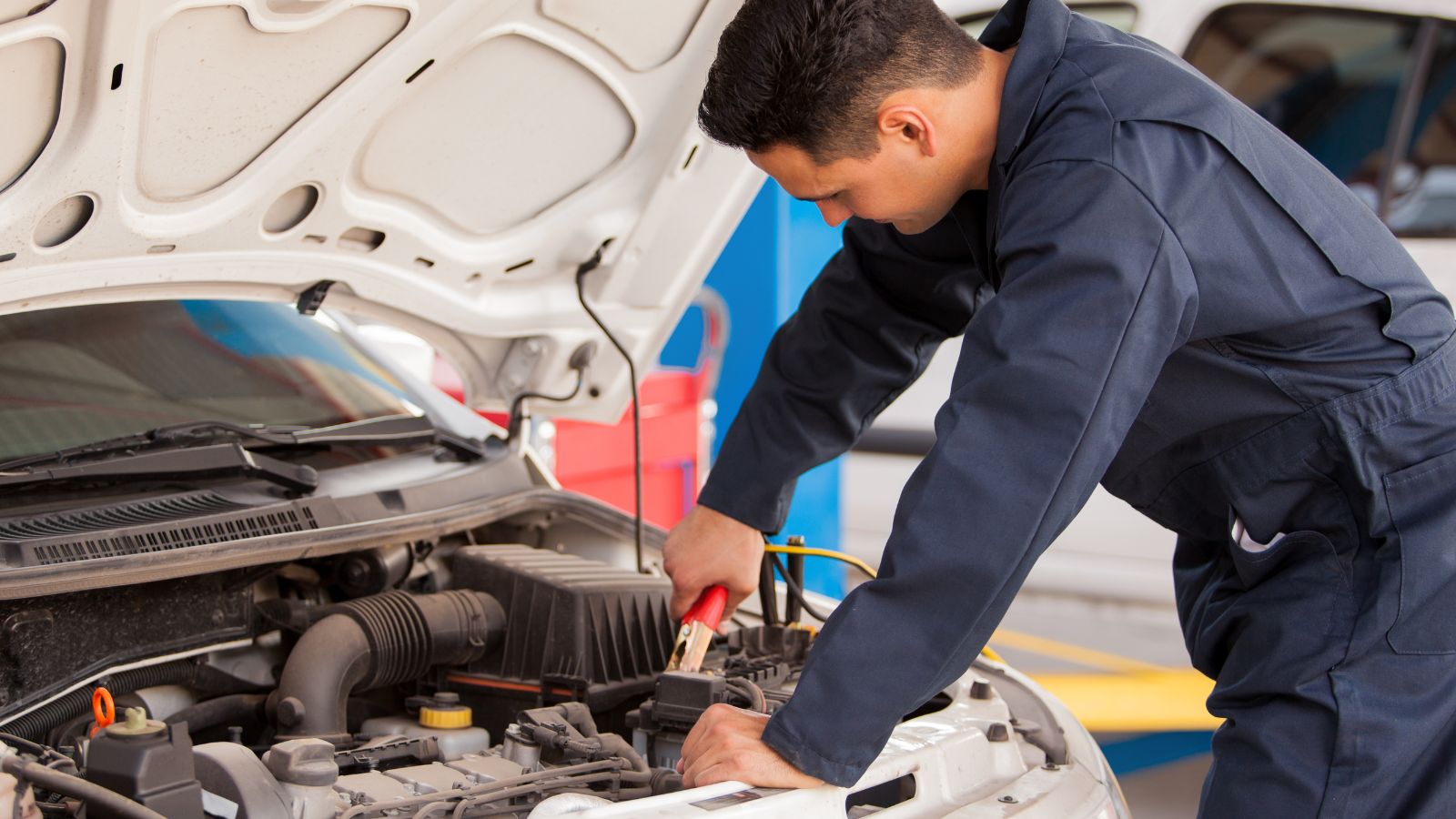
Diagnosing and repairing cars can be complex and time-consuming, therefore asking why it’s taking so long can imply you don’t trust your mechanic’s efficiency. Instead, ask for regular updates and understand that good work requires time. A thorough job today can save you from more trouble in the future.
“I Heard a Weird Noise, But I’m Not Sure Where From”

Vague descriptions can make it difficult for your mechanic to identify the problem; try to be as specific as possible about what you heard, felt, or saw. If you can’t pinpoint the issue, that’s okay, but giving as much detail as possible helps your mechanic diagnose and fix the problem more efficiently.
“It’s Never Done This Before”
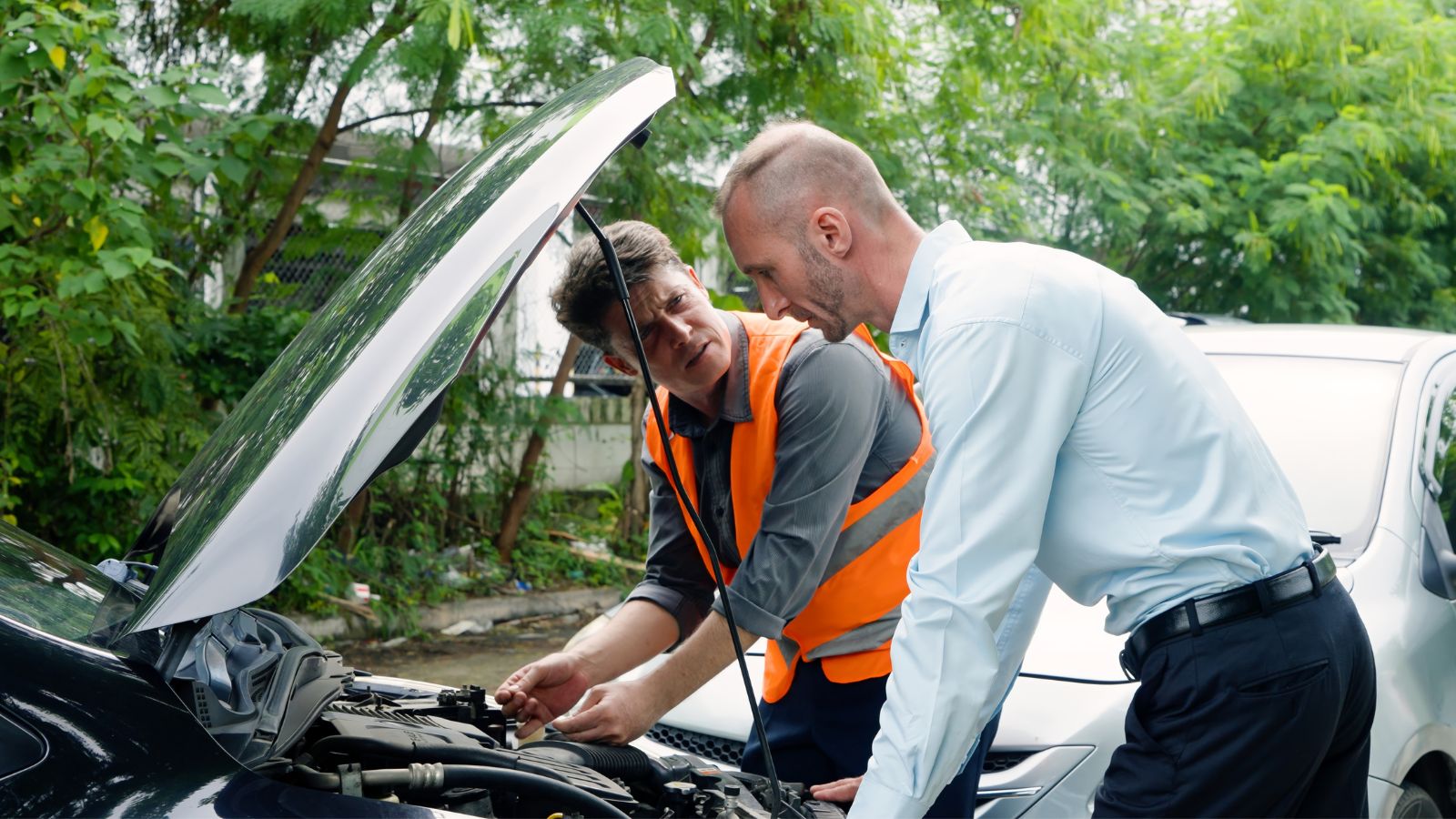
While this statement might be true, it doesn’t help your mechanic figure out what’s wrong. Cars develop issues over time, and what hasn’t happened before can certainly happen now, so instead, focus on describing the current problem rather than stressing its novelty.
“Do You Really Need to Do That?”

Questioning your mechanic’s recommendations can come off as distrustful. If you’re unsure about a suggested repair, ask for an explanation rather than outright questioning its necessity. Most mechanics are happy to explain why a certain repair is needed, which can help build trust and ensure you understand the value of the work being done.
“I’m in a Hurry, Can You Skip the Test Drive?”
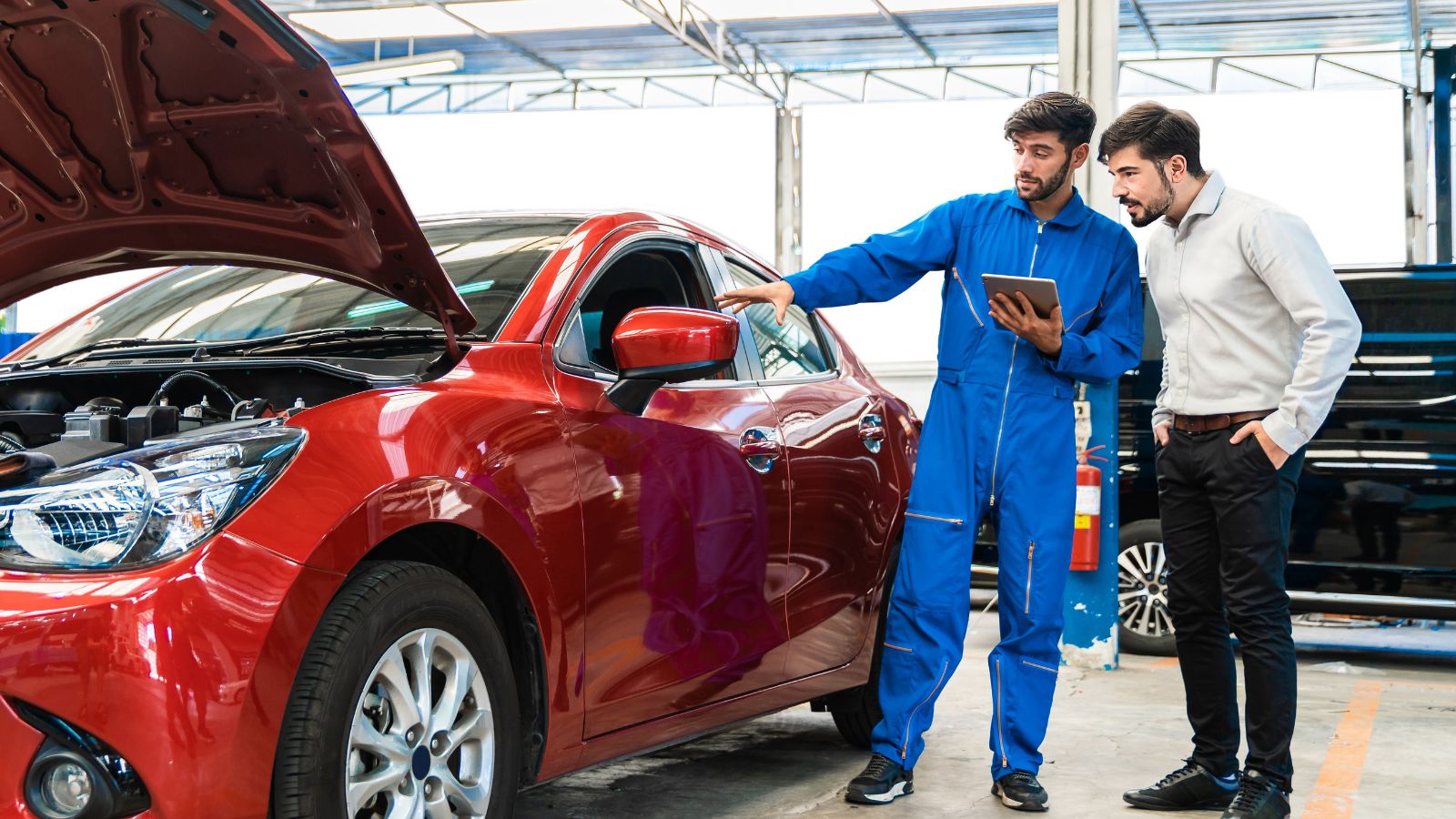
Test drives are crucial for ensuring that the repair has been done correctly, so asking your mechanic to skip this step can compromise the quality of the repair and your safety. If time is a concern, discuss it upfront and plan accordingly—but don’t sacrifice thoroughness for speed.
“Can You Just Patch It Up?”
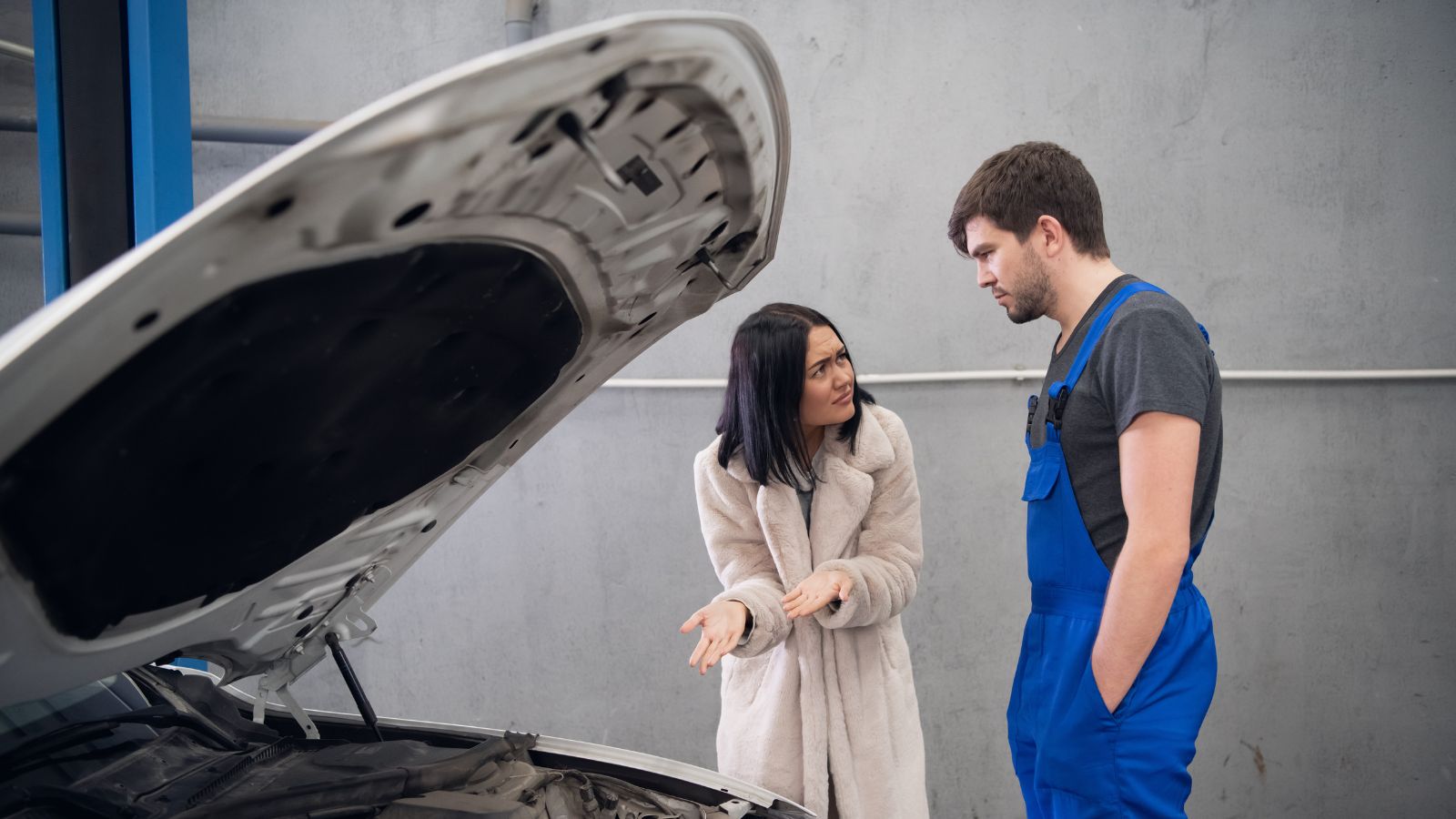
Temporary fixes might seem appealing, especially if you’re short on cash, but they often lead to bigger, more expensive problems later. Your mechanic wants to fix your car properly to ensure it’s safe and reliable, so discuss your budget and see if there are any affordable yet effective solutions instead.
“I Don’t Want to Spend a Lot”

Everyone wants to save money, but repairing your car on the cheap can lead to inadequate fixes and recurring problems, therefore instead of focusing on the cost, think about the value of a proper repair. Quality work may cost more upfront, but it saves you money in the long run by preventing frequent breakdowns.
“Can You Use Second-Hand Parts?”

While second-hand parts can be cheaper, they’re not always reliable. Your mechanic wants to ensure your car is in top condition, and using new, warranted parts is a big part of that, so if you’re worried about the price, discuss your options—but understand that second-hand parts can compromise the longevity and safety of the repair.
“It Should Be Easy to Find the Problem”

Assuming a problem is easy to diagnose can downplay the complexity of automotive repair. Modern cars are intricate, and what seems simple on the surface can be quite involved, so trust your mechanic’s process and appreciate the effort they put into accurately diagnosing and fixing your car.
“Can You Match the Price of the Guy Down the Street?”

Comparing prices with other mechanics can strain your relationship with your current one, as every shop has its pricing based on the quality of service, expertise, and parts used. See if there’s room for negotiation, but don’t expect a price match without compromising on quality.
“I Only Have X Amount to Spend”

Budget constraints are understandable, but they shouldn’t dictate the quality of the repair, so let your mechanic know your budget upfront and ask for their advice on how to prioritise repairs within that limit. They can often suggest ways to address the most critical issues first without compromising safety.
“Can I Watch You Work?”
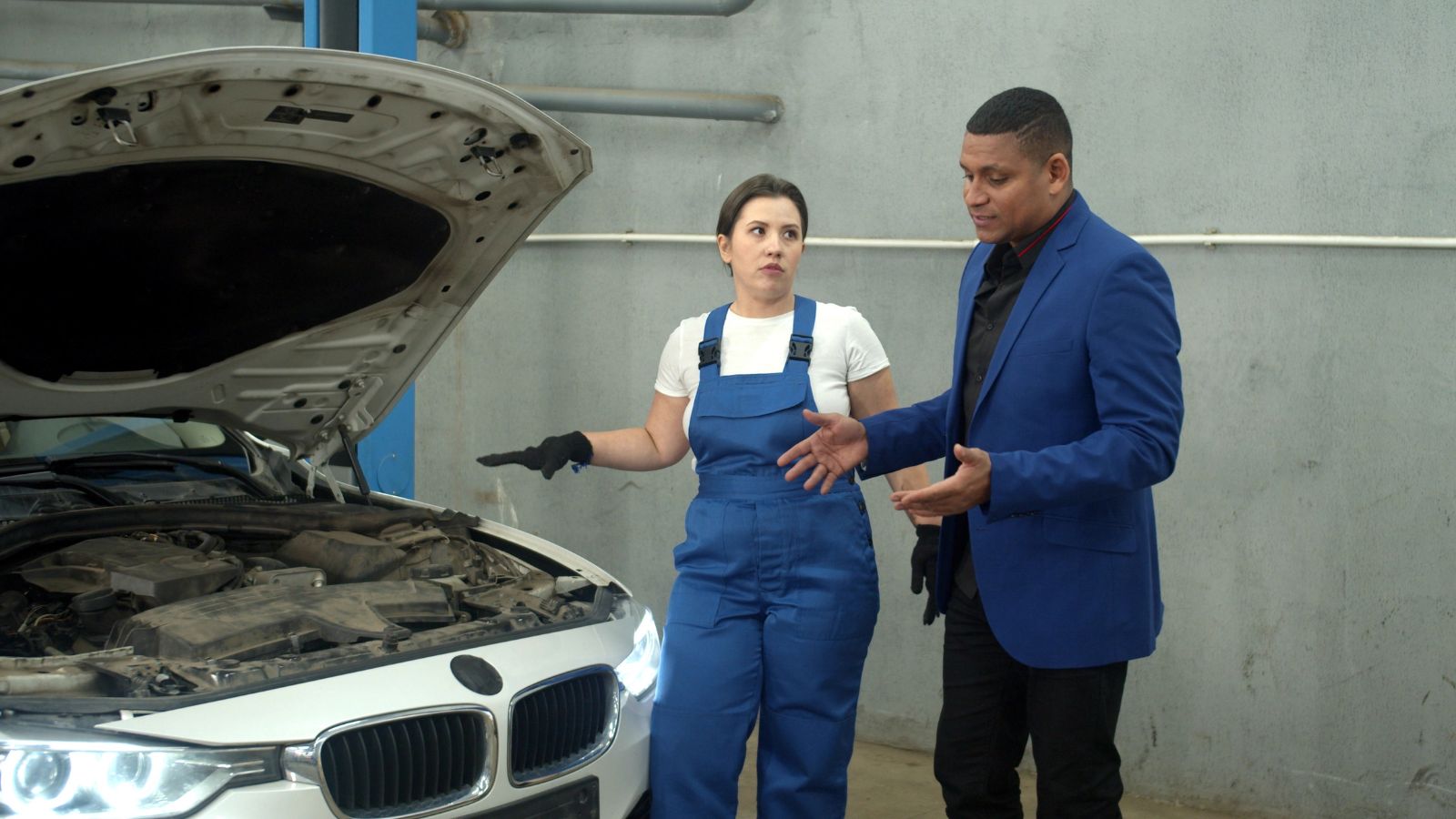
While curiosity about your car’s repair is natural, hovering over your mechanic can be distracting and stressful; trust them to do their job without constant supervision. If you’re interested in the process, ask for an explanation or update after they’ve had a chance to work on your car uninterrupted.

